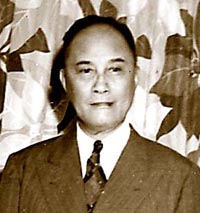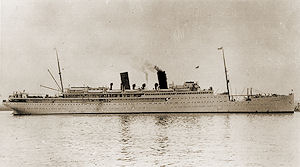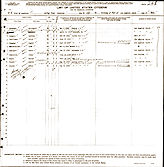Chapter 12
CITY OF ANGELS

Having obtained a third class passage on the S. S. City of Honolulu, I was finally on my way to the United States the Land of Opportunity.
 Among the third class passengers on the ship was Pablo Manlapit, the Filipino attorney who had led the 1924 general strike of the Hawaiian sugar plantation workers. Manlapit, a brilliant attorney and a spell binding speaker, was well known throughout the territory, as his name was in the newspapers every day during the strike. He was a celebrity among the Filipinos, especially the sugar plantation workers who considered him their hero. Manlapit had been convicted of perjury and sentenced to jail during the strike. He was paroled in 1927, with the provision that he leave the territory of Hawaii. Two lawmen brought him to the ship straight from jail. His large family and a host of followers were on the dock to watch him board the ship.
Among the third class passengers on the ship was Pablo Manlapit, the Filipino attorney who had led the 1924 general strike of the Hawaiian sugar plantation workers. Manlapit, a brilliant attorney and a spell binding speaker, was well known throughout the territory, as his name was in the newspapers every day during the strike. He was a celebrity among the Filipinos, especially the sugar plantation workers who considered him their hero. Manlapit had been convicted of perjury and sentenced to jail during the strike. He was paroled in 1927, with the provision that he leave the territory of Hawaii. Two lawmen brought him to the ship straight from jail. His large family and a host of followers were on the dock to watch him board the ship.
Manlapit was assigned the bunk next to mine and, in no time, we were acquainted. Like myself, he was a Tagalog; and he had come from the same area of the Philippines as I had. I was elated when he became friendly toward me on the first day out. When he mentioned that he had some powerful connections in Los Angeles who would provide him with funds, I assumed that he was short of money and offered him some of mine. He declined, but his feeling of good will toward me increased after the offer of my meager funds. Before the trip was over, we had decided to team up in seeking our fortunes in the new country.
The S. S. City of Honolulu sailed from Honolulu on Aug. 13, 1927 landing in Los Angeles on Aug. 19. - Click each photo to enlarge.

The S. S. City of Honolulu.
|

The ship's manifest listing Felipe and Manlapit.
|
On a beautiful morning, the S. S. City of Honolulu docked at San Pedro, California. I was ecstatic with pride, hope, and joy when I first set my feet on this Promised Land. Manlapit was met at the dock by several well dressed Filipinos and Americans.
Manlapit and I took separate rooms in a low rent hotel not far from the present City Hall. During the first several days, I went with him to meet different people I was amazed at the number of acquaintances he had there already. When he asked me how my money was holding out, I replied that I still had some. My fare to New Orleans, which I had resolved not to touch, was tucked in a compartment of my billfold. He showed me a large roll of high denomination bills. His sudden affluence impressed me, but I felt he should tell me where he got so much money. Neither of us had found a source of legitimate income yet.
Clouds of doubt began to form in my mind, when I remembered the unflattering and derogatory articles I had read about him during the 1924 strike. It had been mentioned in the newspapers that Manlapit was a tool of the Communists. Was there any truth to those articles? I began to wonder. I also remembered that William Foster, a leading Communist of the time, spoke at many of the strike rallies.
In my brief association with Manlapit, I had not seen him do nor heard him say anything improper; but I thought he should confide in me. When he did not, I decided to part company with him. My good and wholesome life with the Halls had imbued me with a deep sense of love and loyalty for the American way of life. The religious upbringing my parents gave me had endowed me with an unshakable
belief in God. These were two priceless possessions that I was not willing to abandon for any personal aggrandizement. So, I parted from Manlapit.
Our parting was made simple by my introduction to the night life of the city. I met a former co worker from the Royal Hawaiian Hotel, who took me to a place where the Filipinos congregated. We had supper and then went to a taxi dance hall the first dance hall I had ever been in. It cost us only a dime a dance. The prospect of learning this social activity and holding a pretty girl in my arms for a few minutes was an exhilarating experience for me.
I was enjoying the evening so much that I had no thought of anything bad befalling me. I ran out of tickets and decided to spend one more dollar before leaving the dance hall. When I reached for my wallet, I discovered it had been taken. My consternation was electrical. I could not believe it I had lost all my money, including my train fare to New Orleans. When I told my friend what had happened, he apologized for not warning me about the pickpockets who preyed on taxi dance hall customers. He loaned me $5 and told me to meet him at a certain employment office early the next morning. He knew the manager and would help me get a job.
I was at the employment office when it opened and my friend arrived shortly afterward. He told the manager what had happened to me the previous night. Luck was with me. Just before closing time the day before, there had been a call for a general helper in a roadhouse. The manager said I could have the job. It was not much of a job, but it would be security for me for awhile: sixty dollars a month with meals and lodging. I would have to go to Perris
Heights, miles south of Los Angeles, to work. My Good Samaritan friend paid the employment agency and bought me a bus ticket to Perris.
When the bus reached Perris, I was surprised to find it was only a village. The manager was waiting for me at the bus stop and took me to the Perris Heights Club Hotel. It was a couple of miles up the hill, isolated from everything. When we reached the hotel, I had another big surprise: it was not in full operation it was still in the process of construction. There were two other employees besides myself. We three were more like caretakers.
Carpenters and landscapers were busy every day. The owner, Mr. William Goetz of Hollywood, came only on weekends to see how the work was progressing. A few cabins had been completed and they were always full on weekends with Hollywood residents, mostly movie actors and actresses. It was a very lonely life for me. I was sure I would not stay there for long.
I wrote my Godfather in New Orleans about my current situation and told him about the loss of my funds in the taxi dance hall. His reply included a money order for $100 and instructions on how to get to New Orleans by train. I quit at the receipt of that letter and money order and went straight to the Southern Pacific Station in Los Angeles. To New Orleans I went. It took me two days to reach New Orleans. I arrived there late in the afternoon and took a cab to Roman's home. When I reached it, I met him and his wife Mim at the door. They were on their way to the depot to meet me.
Roman and Mim and their two daughters, Nunee and Dedee, both under school age, lived with Mim's parents and her only sister. They lived in a three story house in the French Quarter. The family occupied the second floor. The third floor was rented to Filipino boarders, mostly seamen. The ground floor was used as a pool room, with two pool tables operated by Roman. In the back of the house were the dining room and kitchen.
I found another adopted mother here in the person of Mim's mother whom everybody called "Mama". These people, particularly Mim and her mother, were to be my family for years to come. They would, on several occasions, come to my aid in time of need after I was married and had children.
During the first few months, I helped Roman run the pool room. He was also running a penny ante poker game among the Filipinos. His business must have been flourishing: he always had a good sized roll of money in his pocket and he was the banker for many Filipinos. Mim, the daughter of a mixed marriage, was a very kind and attractive woman. It made me so proud that my Godfather had married into such a fine family. They were very popular and well known in the Filipino community of New Orleans.
I looked for a job in the hotels and restaurants, but it seemed that the colored people had a monopoly on these jobs. August and September passed and I was still unemployed.
Continue to next chapter...

(Introduction)
(Contents)
(Chap 1)
(Chap 2)
(Chap 3)
(Chap 4)
(Chap 5)
(Chap 6)
(Chap 7)
(Chap 8)
(Chap 9)
(Chap 10)
(Chap 11)
(Chap 12)
(Chap 13)
(Chap 14)
(Chap 15)
(Chap 16)
(Chap 17)
(Chap 18)
(Chap 19)
(Chap 20)
(Chap 21)
(Chap 22)
(Chap 23)
(Chap 24)
(Chap 25)
(Chap 26)
(Chap 27)
(Chap 28)

|